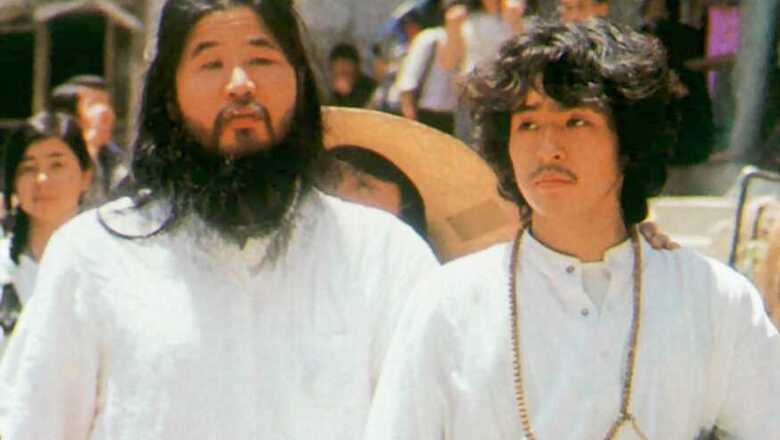
views
Tokyo, Japan: Japan's decision to execute a doomsday cult leader and his disciples over a 1995 sarin gas attack might have drawn a line under the horrific saga, but hundreds of people continue to sign up to Aum Shinrikyo's successor groups each year, authorities say.
The last six members of the cult on death row were hanged on Thursday for crimes including the attack on the Tokyo subway that killed 13. The incident happened just a few weeks after the group's near-blind "guru" Shoko Asahara was executed along with six other followers.
While the high-profile case served as a warning over the dangers of cults, the executions are unlikely to end the allure of such groups in Japan, said Kimiaki Nishida, professor of social psychology at Tokyo's Rissho University.
"We know that their followers didn't have a happy end," he told AFP.
"But I'm afraid cults will continue to exist, since society cannot solve every problem, while cults offer the fantasy that they have the answers to everything."
Aum successor groups have around 1,650 members in Japan, and hundreds more in Russia, according to Japan's Public Security Intelligence Agency.
It says the groups attract around 100 new followers a year through activities such as yoga and fortune-telling.
Japanese have also flocked to religious sects that are considered cults in some parts of Europe but are tolerated in Japan, including the Soka Gakkai, which is based on Buddhism and has millions of members worldwide.
Unlike some European countries, where groups ranging from the Church of Scientology to the Unification Church are considered "cults", Japan takes a relatively open view towards what are often simply called "newly emerged religions".
"The biggest cult (in Japan) is the Unification Church," said Yoshiro Ito, an anti-cult lawyer.
He estimates tens of thousands of Japanese may belong to the group founded by the late South Korean Sun Myung Moon, who is revered as a messiah by his followers.
Successors operate openly
Self-professed guru Asahara developed the Aum cult in the 1980s, attracting over 10,000 followers, including the doctors and engineers who manufactured the group's toxins.
The chemical weapons were deployed to devastating effect twice -- in the Japanese city of Matsumoto in 1994, and then in the 1995 strike, targeting Tokyo's notoriously crowded subway system at rush hour.
The attack, which also left thousands injured, prompted a crackdown on the Aum's headquarters, where authorities discovered a plant capable of producing enough sarin to kill millions.
Escaped members of the cult and anti-cult activists had long warned about the Aum, but authorities had failed to act, and even after the sarin attack the group was not officially banned.
Two successor cults, Aleph and Hikarinowa, continue to recruit members and operate openly, which some experts say makes it easier to monitor them.
Aleph, which Asahara's wife and several children belong to, formally renounced the Aum guru in 2000. But he retained strong influence and some experts believe his execution may even boost his status.
Looking for meaning and warmth
Ito said Japan's complicated religious history had left many people unmoored from their faith and looking for answers.
"State sponsorship of Shintoism, with the emperor serving as a living god, was forced upon people during wartime. The US occupation forces broke it up," he said.
"Suddenly people didn't know what to believe."
Buddhism and Shintoism are the two major religions in Japan, but the faiths are falling out of favour.
"You used to have altars and home shrines in households, where you could feel you were connected to your ancestors," said Kenji Kawashima, professor of contemporary thought and philosophy at Tohoku Gakuin University.
"New religions have made inroads where traditions have been lost. Among them are radical ones, which are cults."
A focus in Japan on economic success, and immense pressure on young people, also increases the allure of fringe religious groups, Ito said.
"These youngsters are looking for warm hearts somewhere."
With little sign that cult membership is falling, experts warn careful monitoring is needed.
"Cults have their exterior, and their hidden faces," said Kawashima.
"We should listen closely to the voices of followers who have left cults. If we had done that, we could have prevented the Aum's crimes."



















Comments
0 comment